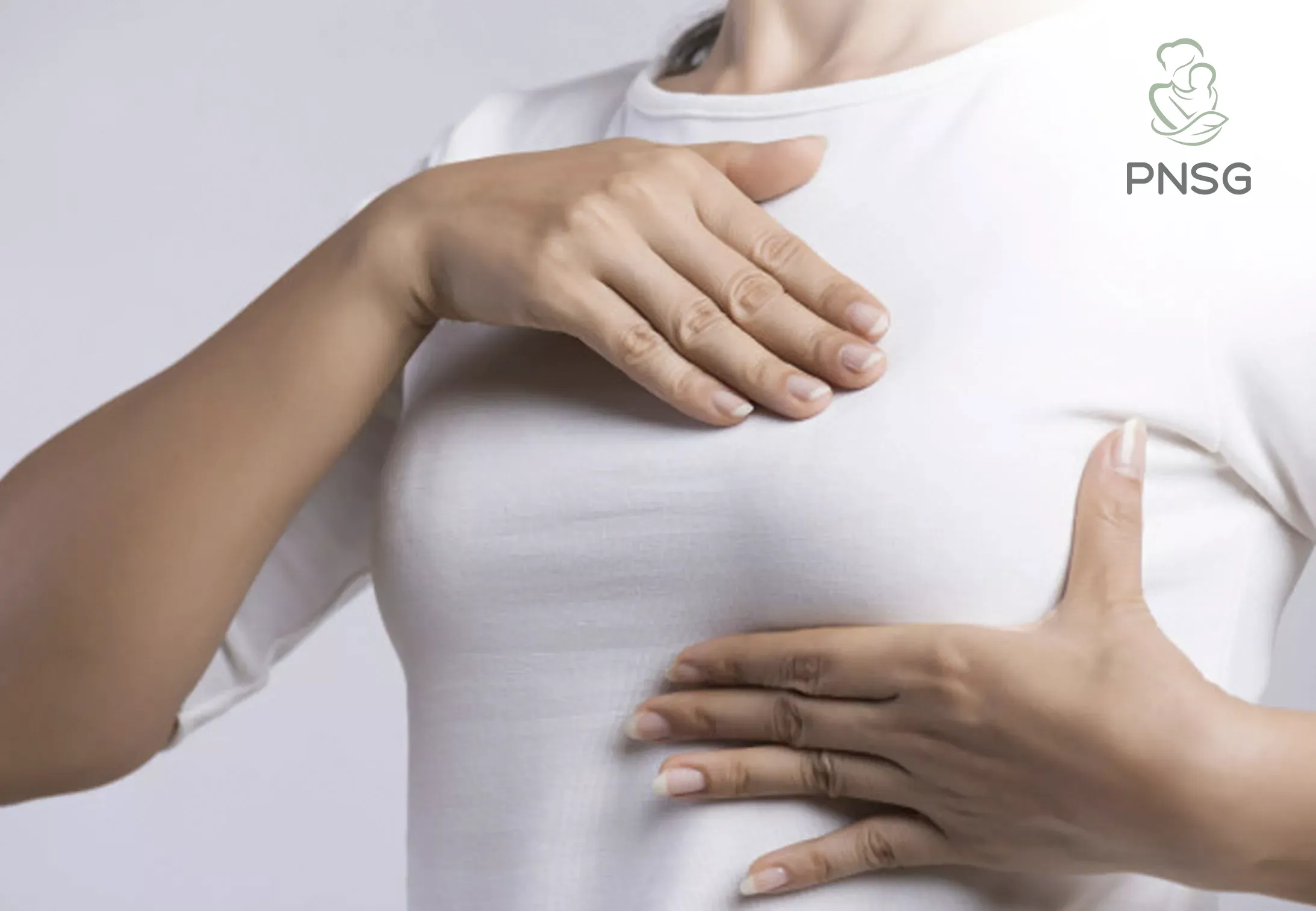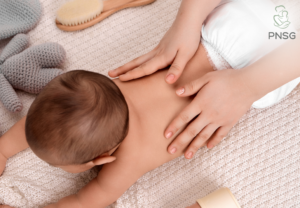7 Gambas Crescent, #09-09, Ark@Gambas, Singapore 757087 ♦ Reservation : +65 6417 9690
3 Effective Ways to Relieve Engorged Breasts
 Majority of new moms who breastfeed – either exclusively or not – know what it is like to experience breast engorgement. Unfortunately, more often than not, it is extremely unpleasant to deal with.
Not all moms can keep feeding their babies with breasts that crack and feel like they are on fire. Due to this, engorged breasts can give moms trauma to the point they immediately plan to stop breastfeeding.
Luckily, there are many ways you can treat engorged breasts. You may take pills if you’d like, but if you prefer more natural ways to go about it, here are three methods you should definitely try!
Majority of new moms who breastfeed – either exclusively or not – know what it is like to experience breast engorgement. Unfortunately, more often than not, it is extremely unpleasant to deal with.
Not all moms can keep feeding their babies with breasts that crack and feel like they are on fire. Due to this, engorged breasts can give moms trauma to the point they immediately plan to stop breastfeeding.
Luckily, there are many ways you can treat engorged breasts. You may take pills if you’d like, but if you prefer more natural ways to go about it, here are three methods you should definitely try!
Compression
Do you remember how you would hold and press an ice pack to your cheek when you have toothache, and how much that soothes the pain? That’s what compression does. Compression is a good first step to relieving most muscle or physical pain. In treating breast engorgement, it is also effective to stimulate milk flow apart from just relieving the discomforts. But, should you opt for hot or cold compression? Why not both? You don’t necessarily have to try both of them at once, but if one does not work for you, at least you can go with the other type. To apply heat, you may use a warm pack or make your own by filling a bottle with warm water and wrapping it with a thick cloth. Apply the heat to your breast for about 5-10 minutes before you start breastfeeding. Alternatively, you can just step into a warm bath. Remember to keep the water at a warm temperature and NOT steaming hot. In case that does not relieve the engorgement, you can opt for cold compression. Give it some time and do not try it immediately after you do the heat compression. For this, you may use a wrapped ice pack. Apply it to your breast for a few minutes where needed. This can especially help to reduce swelling and inflammation.Cabbage
Wait…cabbage? The same cabbage you would shred and throw into soups? Yes, THAT cabbage. This unsuspected method has helped many mothers to relieve their acute breast pain. How does it work? This unusual form of therapy is effective because the cabbage leaves are able to absorb some of the fluids from the glands on the breasts, hence reducing the fullness or swellings of the tissue. You may notice some improvements like reduced inflammation within 12 hours of starting it. Here’s how to do it, from A to Z!- Refrigerate for 15 minutes before using. Like an ice pack, the cabbage works best when it is cold.
- Remove the outermost layer of the cabbage and use the leaves on the inside. Store the rest of the cabbage for future use.
- Clean 3 cabbage leaves thoroughly with running water, and ensure there is no dirt residue.
- Use a clean cloth and dry the leaves.
- Slip a leaf into your top, covering as much of your breasts as possible.
- Leave the leaf there for not more than 2 hours or until it starts to feel warm. If you wish to breastfeed, remove the leaf as soon as you start feeling better. Leaving the cabbage leaves on for too long may affect your milk supply.
- The used leaves cannot be reused and are to be immediately disposed of.
Massage
Last but certainly not least, what better way to relieve the most common types of body discomforts than to massage them away? Massaging your breasts can help to stimulate breast milk production and prevent the risk of issues like blockage of milk ducts, breast engorgement, and mastitis. You may massage your breasts or have your partner do it once or twice a day! Simple steps of massage you can practise before pumping:- Hold up your breast and lightly rub the bottom part of your breast.
- Use one hand to lightly rub the top part of your breast.
- Lightly rub the left part of your breast.
- Lightly rub the right side of your breast.
- Using 2 fingers to form a “scissor”, place your nipples in between, slightly pinch and shake lightly.
- Palm your entire breast and lightly shake.
Frequently Asked Questions about Breast Engorgement
Q: How to do breast massage for engorgement?
Start by massaging around the areola in circular movements. Gradually massage from the outer sides of your breast with the movement still going towards the centre, this time switching it with light tapping and kneading. If you are experiencing blocked ducts, try locating the clog and massage it towards the ducts. For a more effective breast engorgement massage, you can consider opting for our postnatal massage so that our therapist can help tackle your engorgement and get rid of it.Q: Does massaging breasts help engorgement?
Massage can certainly help in treating engorgement and unblocking clogged milk ducts. It is in fact one of the more recommended and preferred treatments for engorgement among new mothers in Singapore. Make sure to go for a certified masseuse rather than a regular therapist who may not be as experienced in treating such issues. At PNSG, breast massage for engorgement is an important part of our postnatal massage. Our professional therapist is trained to assist mothers in clearing milk ducts and ensuring smooth flow.Q: How to relieve breast engorgement?
To relieve engorged breasts, there are several methods that new mothers generally swear by. The first is none other than getting a postnatal massage itself. It is one of the effective treatments to stimulate and unclog blocked milk ducts, improving your milk flow and relieving any breastfeeding discomforts. When not feeding, try pumping regularly to ensure smooth flow. Using both hot and cold compressions is also recommended, as well as taking a warm shower. You could also try applying cabbage leaves, but take note of the guidelines such as for how long you should leave them on.Q: How long does breast engorgement last?
Breast engorgement is a condition that can occur when a mother’s breasts become full of milk. This can happen when a baby is not nursing often enough, or if a mother is trying to wean her baby. Engorgement can cause the breasts to feel hard, sore, and swollen. It can also lead to milk leaking from the breasts. Engorgement usually lasts for a few days, and it will go away on its own once the breasts have been emptied. If engorgement is severe, a mother may need to use a breast pump to relieve the pressure or come to us for a breast massage for breastfeeding optimisation!Q: Is it true that a new mother’s diet will affect her breastfeeding experience? How?
In some ways, a mother’s diet may affect her breastfeeding experience. Sometimes, if a mother eats too little, she may struggle with producing breast milk especially during the first month of postpartum since the nutritional intake obtained is also used to support a mother’s recovery and wound healing process. If a mother is malnourished, she will feel immense fatigue and may be more prone to getting infections (because her wounds take longer to heal).Q: How many calories should a breastfeeding mom have in a day? What is the best way to achieve the extra calories?
It definitely differs from person to person but a general guide is a calorie intake of no less than 1800kcal/day to support mothers who breastfeed. Recommended Singapore Dietary Allowance is anywhere between 2000 to 3000kcal/day depending on your body mass index and how active you are.Q: What are some food or ingredients that can help with milk supply and how?
Some ingredients that are especially recommended – which are also quite common in traditional confinement dishes are ginger, garlic, and unripe papaya or green papaya. I would also suggest adding fennel, fenugreek, and Moringa leaf into your meals or drinks. These can work in different ways to help with your milk production.Q: To kickstart their breastfeeding well, should moms plan their meals from pregnancy onwards?
So long as mothers practice a well-balanced and healthy diet throughout pregnancy, mothers should not have to worry about diet affecting their breastfeeding experience.Q: Are there foods that can make a baby refuse to breastfeed due to the difference in the milk’s texture/consistency, odour, or other factors?
Foods are very rarely the cause of your baby refusing to breastfeed. More often than not, it is due to position or improper latching, or the milk letdown is too slow or too fast. But if you have cancelled out other possibilities and your baby still seems to be fussier than normal, then maybe certain foods could have affected it as well. If you have identified those foods, you can omit them from your diet for a while and observe. However, do discuss this with your paediatrician or dietitian as we do not want you to lose important nutrients for you and your baby. Foods should not be unnecessarily avoided as this may cause more harm than good to you and your baby.Q: Is it possible for a breastfed baby to develop an allergy through foods consumed by the mother? Is it determined by the foods that the mom is also allergic to too?
It is possible. If you have an allergy or have a history of allergies in your family, there is a higher chance that your baby may have a food allergy too. It may be the same or a different food allergy compared to yours. Babies with eczema are also more prone to developing food allergies. However, this does not mean you unnecessarily avoid specific foods without even trying. Therefore, speak with your paediatrician before you eat these foods you are concerned about and discuss how you should go about it if you notice your child having an allergic reaction to these specific foods. Generally, you would be advised to avoid it for a specific period of time before reintroducing them back into your diet to observe your baby’s tolerance.Q: Is a vegetarian/vegan diet good for a breastfeeding mother to follow?
If a mother is a vegetarian or a vegan, she needs to understand which are her plant-based carbohydrates, plant-based proteins and her vegetables. She has to understand how much to include in her diet in order to have a balanced and healthy diet every day. On top of it, she needs to understand some vitamins and minerals can be missing or may have poorer absorption rates. Therefore, vegetarians or vegans have a higher risk of being nutrient deficient. It is wise for mothers to consult a dietitian in order to ensure she is having sufficient intake for themselves and their little one while breastfeeding.Q: If I drink alcohol or coffee, is there any way to know that they are out of my blood system and breast milk other than waiting for 3 hours before breastfeeding?
Not drinking alcohol is the safest option for breastfeeding mothers as alcohol exposure increases the risk of damaging your little one’s growth and development. But if you do consume alcohol while breastfeeding, up to 2% of alcohol consumed leaks into your breastmilk and peaks at about 2 to 3 hours after consumption of 1 standard drink. So if you do drink 1 standard drink of alcohol, remember to wait 3 hours before nursing to keep alcohol exposure to your infant minimal. Drinking alcoholic beverages is not an indication to stop breastfeeding, however, consuming more than one drink per day is highly not recommended. Moderate intake of coffee which is 1 to 2 cups a day is fine. Caffeine intake below 200 to 300mg/day does not show any long-lasting detrimental effect on your baby, should it leak into the breastmilk. Your baby may be more jittery, unable to fall asleep and may appear to be fussier than normal if your caffeine intake is more than 300 mg/dayQ: Any other information that you want lactating mothers to know?
As we all know, omega 3 DHA is important for the development of your baby’s brain. Remember to have omega 3-DHA-rich fish at least two times per week to ensure adequate intake. The more omega 3-DHA intake in mothers, the more omega 3 DHA is present in your breast milk for your little one. Besides that, omega 3 DHA intake has also been associated with lower postpartum depression risk due to its anti-inflammatory properties which regulate neurotransmitters in the brain. A heartfelt thank you to Eunice Tan, In-House Dietitian at Tian Wei Signature & ReLacto, for being so generous with her knowledge and expertise and sharing them all with us and the mothers reading this. We hope the information shared will help you tremendously as you embark on your journey as a breastfeeding mom. On another hand, if you have practised a well-balanced diet as recommended by any professional experts and still face breastfeeding difficulties, there are other factors to consider as well.Incorrect Techniques or Position
Just like mentioned by Eunice, it could be due to improper latching techniques or the position you use during breastfeeding. There are a lot of positions you could try, the football hold, side-lying position, reclined (half seated up) position, plus several others. Hence, make sure to try out different positions to find the ones that work for both you and your baby! Not sure if your baby is latching properly? Check for these signs of a good latch:- Your baby’s mouth is wide open around your breast.
- Your baby’s lips are flanged.
- Your baby’s tongue is extended forward under your breast.
- Your baby’s chin touches the breast and your nose is free.
- You hear or see swallowing.
Breastfeeding Pain
Issues like poor latch can cause blocked ducts or breast engorgement which could lead to low milk supply, we at PNSG offer the best solution for you; massage! Our Postnatal Massage or Premium Postnatal Massage includes breast massage for increasing milk supply which works to improve lactation by clearing clogged milk ducts and relieving engorgement. If you need your discomforts to be massaged away for good, we are just one call away! Our post natal massage price starts from $638 for 5 sessions. If you are looking for the best post natal massage singapore, you know where to find us! Reach us at +65 6417 9690 from 9 AM to 6 PM daily to secure your slot. Let us help get rid of what’s getting in the way of your smooth breastfeeding experience! On top of that, our therapist also will demonstrate a baby massage that helps to calm your baby down. What’s there to say no to?








